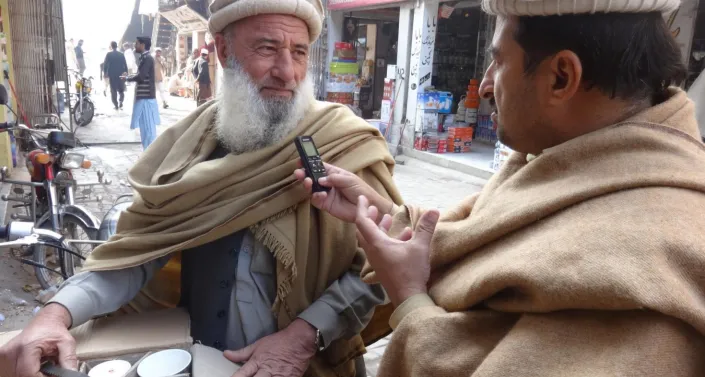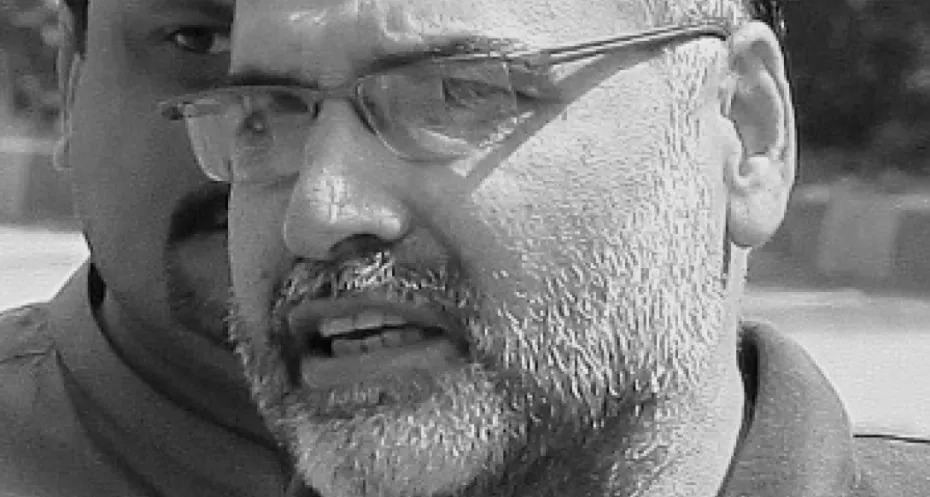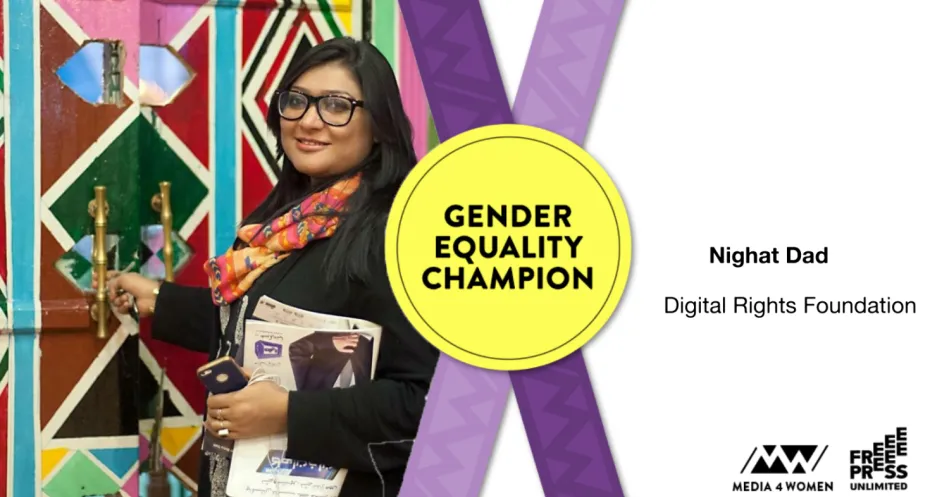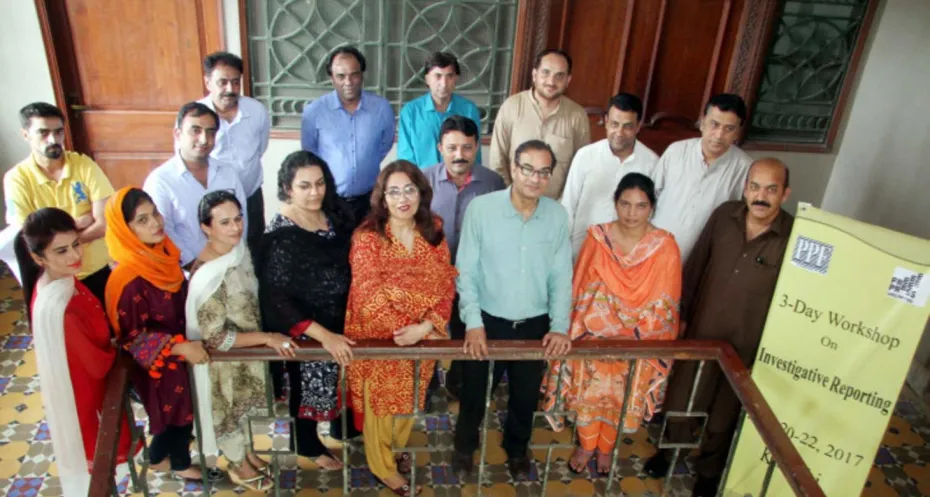
Pakistan
Pakistan has an extremely hostile media climate. Freedom of expression is limited, violence against media professionals is increasing and perpetrators of these crimes are hardly ever punished. The situation is particularly bad in Pakistan's remote, often inaccessible regions, which have been ignored by the media and authorities. It is especially important to strengthen local media so that the stories of communities in remote areas can be heard. Pakistan ranks 157th on the RSF Press Freedom Index.
Despite a history of active traditional media and despite the emergence of new online media, the media landscape in Pakistan still suffers from ongoing repression. Campaigns against both traditional and online media lead to journalists being accused of blasphemy and terrorism. The flow of information towards the Pakistanis is constantly impeded by shutting down the internet, disrupting TV reception and interrupting the spread of newspapers. In addition, (self)censorship in Pakistan is commonplace.
Position of women journalists
Men dominate the media and women journalists have to deal with the conventional perception of society. As a result, their reporting is often limited to 'safe' topics and they are unable to reach prominent positions. The mainstream media in Pakistan are still extremely traditional, but through independent media channels there is a growing platform for inclusive media organisations. These parties give a voice to women, young people and disadvantaged communities.
3,000 journalists without a job
Journalists in Pakistan face constant physical and legal threats, and with the growing popularity of digital media, women journalists are particularly affected by online harassment. The current level of censorship in Pakistan has been the case since the era of military dictatorships. Since 2015, 26 journalists have been murdered in the country, 13 of them in the past two years, when Imran Khan became Prime Minister of Pakistan. Covid-19 has accelerated negative trends in Pakistan's media sector. In addition to the fact that about 3,000 journalists have lost their jobs, the government is seizing the opportunity to silence critical voices in its fight against "fake news". This ties in seamlessly with the ongoing campaign to limit the space for social organisations and media.
Our work in Pakistan
Free Press Unlimited works with a nationwide network of partners in Pakistan, including media organisations and local media outlets. Over the course of several years we have achieved significant outcomes together. We have worked with the Pakistan Press Foundation to improve the capacity of Pakistani journalists in investigative reporting and the use of Right to Information mechanisms. Through the efforts of the Digital Rights Foundation there has been more attention for, and support directed towards, women journalists in Pakistan – with emphasis on digital security and well being. In the rural areas, the growth of the Tribal News Network both online and through radio has continued to provide access to inclusive and reliable information, resulting in tangible action taken by authorities to improve the lives of the communities around them. The Centrum Media continues to build on their experience as innovative digital media producer to support our partners and a wider journalist network to create content that is engaging for a broader audience.
Our partners have trained journalists in their networks on a range of vital skills from gender sensitive reporting to mobile journalism. They also call for action for the safety of journalists and for better access to information. We are currently in the start-up phase of a project that contributes to a safer, more inclusive and independent media landscape in Pakistan.



